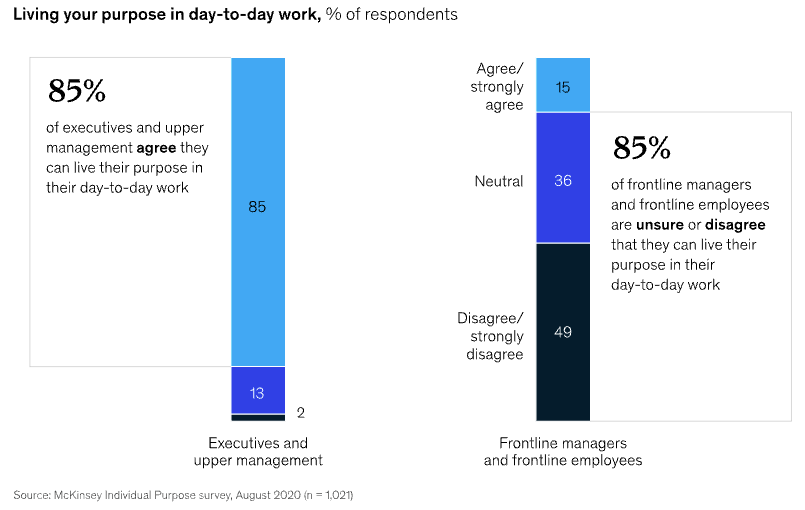This week, in Part 3 of our Job Descriptions series, we’ll take a look at what candidates want. You can read Part 1 here, and you’ll find Part 2 here.
But before we jump in, I want to say a quick “Thank you” to everyone who’s been emailing, calling, tweeting, IG DMing me, Linkedin messaging, etc. I didn’t know that talking about job descriptions, good and bad, would generate so many conversations - but I love the feedback just the same, and I’ve applied most of it to this post.
Thanks again,
Ben
What Candidates Want🎁
Job descriptions should explicitly address the big things candidates care about. But what do candidates care about? Thanks to common sense and some surveys we have the answers to that question.
#1 - A Salary Range
This one is so basic that I find it hard to believe that I have to list it, but here we are.
Many years ago, I was in a second-round interview for a job and asked, “What is on-target earnings for this role?” (On target earnings [or OTE] is basically what a salesperson can expect to make if they hit their quota). I had asked this question in the screener interview, but the recruiter didn’t know.
The answer? Less than half of what I was currently making. The interview ended soon after, and I’m still upset I wasted my time.
#2 - Flexibility
According to an Indeed study, flexibility is the top consideration of job seekers after good compensation/benefits and career advancement. Further, it’s even more important to women. From the study:
This gender difference is even more pronounced in a recent study published by Levers. In that survey, 28% of women named “Good PTO + flexible work options” as a motivation to stay or leave their current role, but only 15% of men said the same.

I’ve written about the appeal of flexibility before, and I advocate for both flexible and remote work. Lever’s and Indeed’s findings aren’t that surprising, but they are worth repeating. Why?
Because many companies, who have experienced considerable productivity gains and valuation growth during the pandemic, are paradoxically requiring their employees to come back to the office. If social media is any indication, that is not a popular decision and, according to these studies, is in direct conflict with what candidates want.
My takeaway: If you offer a flexible work schedule or remote work options, and you want to hire more women, it’s a good idea to mention that early and often in your job descriptions and, if you’re not flexible, then provide context as to why not. Finally, if you’re not flexible but could be, isn’t it time to rethink your policy?
#3 - A Purpose
In an April 2021 study, McKinsey highlighted the importance of an employee’s sense of purpose.
It turns out that work purpose has been a key driver of the Great Resignation Transition - something that McKinsey called a year ago.
One of the more interesting aspects of purpose is the gap between how executives and frontline employees experience meaning at work. 85% of execs agree that they live their purpose in their day-to-day work, but that number drops to 15% for frontline workers.

This difference is fascinating. Is it a chicken and egg problem (i.e., workers are more likely to become executives if they find purpose in their work? Is it the money/status that accelerates an exec finding their purpose? Either way, it’s essential for leaders not to take their work purpose for granted. Primarily because their frontline workers don’t have the same experience.
“Work Purpose” is a much deeper vein than what we’ve covered here. But in terms of a job description, it’s in your interest to communicate your organization’s purpose as concisely as possible, even if that purpose is something that you, as a leader, may take for granted.
Takeaways
Sure, candidates want other things beyond transparent salary ranges, flexibility, and purpose, but I’m continually surprised by how few job descriptions explicitly discuss these three, crucial things.
There are tremendous benefits to being transparent. If nothing else, a potential lousy fit candidate will self-select out, and you just saved yourself (and your hiring committee) a lot of wasted time and effort. Conversely, you might attract purpose-aligned workers to your organizations - and that’s a win all around.





On finding purpose in work - we know lots of existing work about finding purpose in general, in the realm of religion and philosophy. Though "purpose" is more obvious in some types of work than others.
One needs a robust mental framework and frequent reminders to refresh the purpose-o-meter, or risk burnout like nurses, physicians, teachers, etc. during pandemic bad days.
Such mental framework depends on a self-help component of asking "Did my work help make someone's life easier today?" Or something along those lines.
There's also a supporting external feedback part where one gets (hopefully positive comments) from "clients" (e.g. customers, students, patients, bosses...)
It's rare to find someone capable of sustaining years and years of work without any positive feedback - I'd love to learn more about such examples 😅